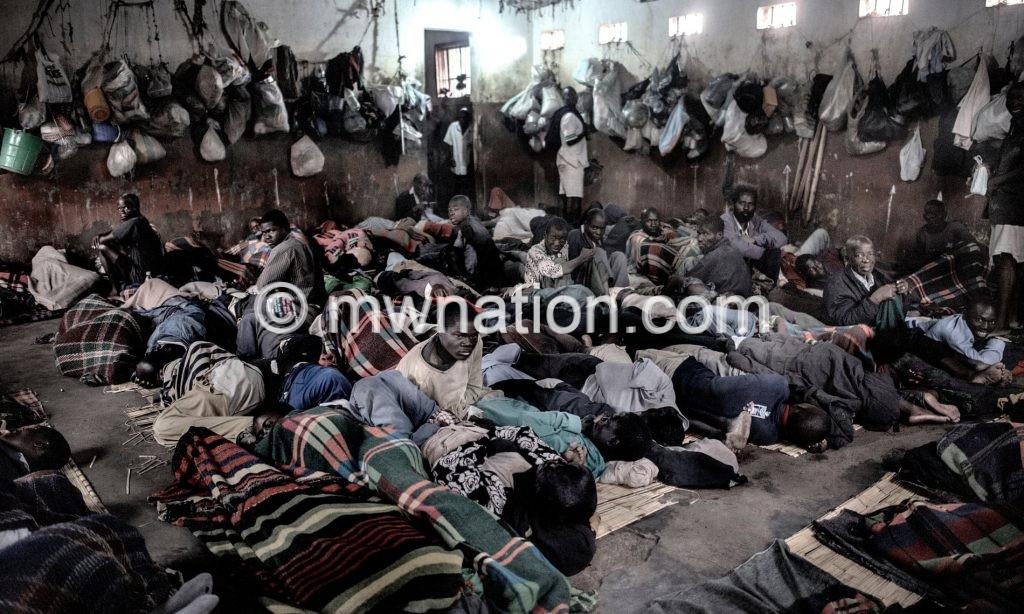Report exposes inhumane conditions in prison
Malawi Inspectorate of Prisons has revealed inhumane conditions, gross human rights violations and neglect on issues of nutrition and health in the country’s prisons and police holding cells.
In its report based on findings from inspections conducted in February, May and August 2020 as well as February 2021 released yesterday in Lilongwe, the Inspectorate also highlighted poor living conditions for prison warders.

Reacting to the report immediately after its release, Centre for Human Rights, Education, Advice and Assistance executive director Victor Chagunyuka Mhango, who is also a member of the Prisons Inspectorate, said the inspectorate is frustrated with the prison situation.
He said: “Some cells are meant for 60 inmates, but we found over 200 inmates piled there. We have tried several times to engage prison authorities on some of the conditions, but nothing seems to work.”
Mhango made reference to Thyolo Prison where a cell meant for 60 inmates had 252 inmates, representing a congestion rate of 317 percent.
He said such situations lead to piling up of inmates like bags of sand which is a recipe for spreading communicable diseases common in prisons such as Covid-19, scabies and tuberculosis.
“One thing we seem to forget is that despite being convicts, inmates in prisons are still full human beings entitled to all human rights provisions both local and international. So why do we treat them like aliens?” Mhango said.
On the criminal justice process, the report indicated flaws that lead to long stay of suspects on remand without trial and that some inmates complained that police demand payment to give bail.
“On the point of suspects overstaying their remand period, there is a case of Harry Kacheya from Balaka who has been on remand at Zomba Central Prison on suspicion of murder since 2007,” reads the report.
On staff living conditions, the inspectorate found that prison officers are living in old, small and dilapidated houses including some erected using iron sheets.
The report further faults the feeding trends and health services access for prisoners; failure to provide rehabilitation facilities and lack of proactive approach to response on emerging issues as serious human rights violations.
“The failure to provide adequate food and medical care is a serious breach of national and international legal and policy instruments and amount to a breach of human rights,” reads the report.
In his reaction, Legal Affairs Committee of Parliament chairperson Peter Dimba said most challenges raised in the report will be solved once the Prisons Bill is enacted into law.
“The challenge is that most of those issues follow legal processes and that is why there is a bill which is ready for tabling and once it is enacted, many of the issues in the report will be solved,” he said.
Most of the challenges highlighted are aggravated by poor funding mechanisms and chairperson of the Finance and Finance Committee of Parliament Gladys Ganda said they will scrutinise the matter during budget consultation.
“We are aware of the funding problems and the challenges it has resulted into so am going to take the matter to the committee during the next budget consultation,” she said.
The total floor space for prisons in Malawi is 14 643.7 square metres and has a holding capacity of 7 322 but currently holds a total of 11 848.





